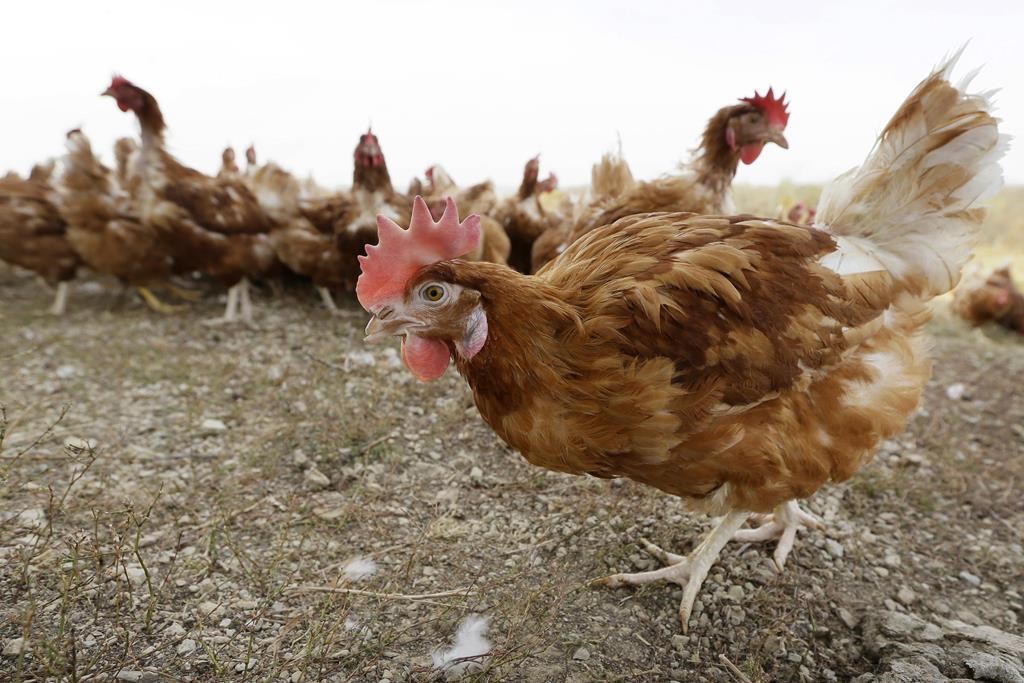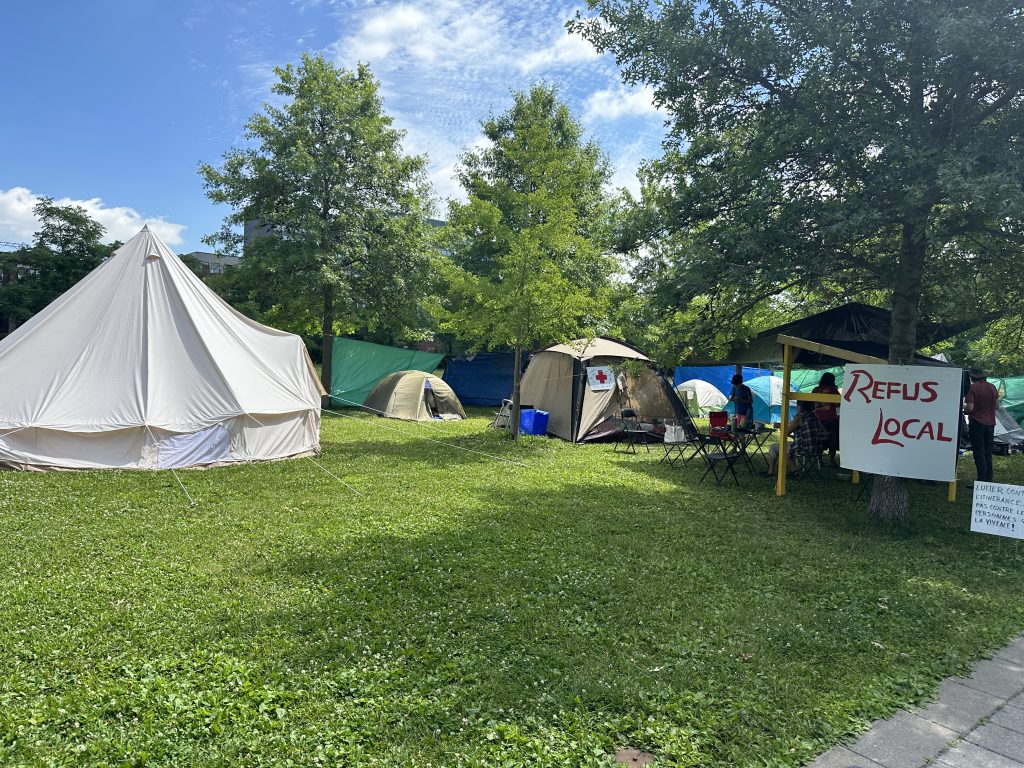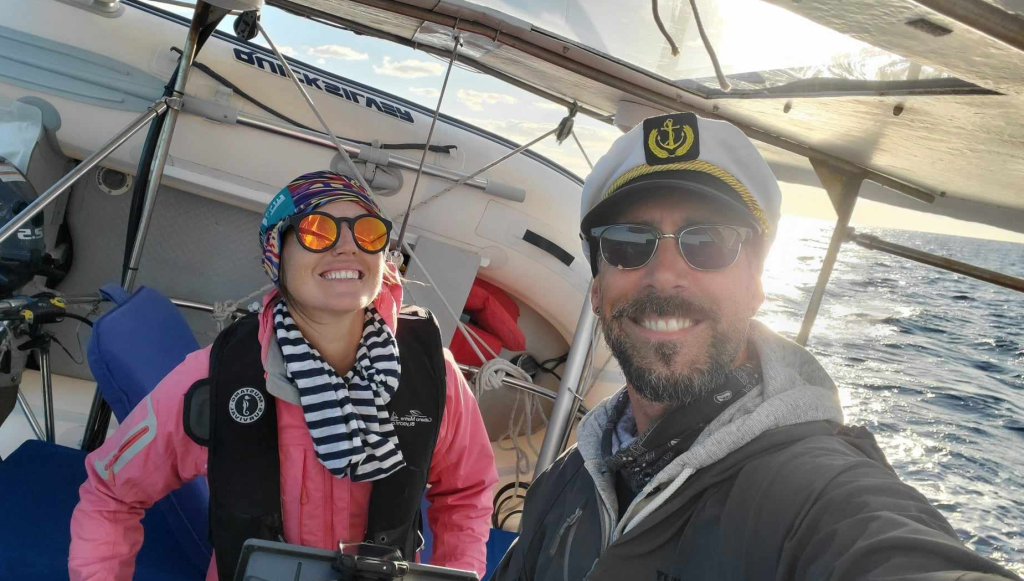Avian flu takes a large toll on Quebec farmers

Posted July 2, 2024 2:10 pm.
Last Updated July 2, 2024 2:13 pm.
Cases of highly pathogenic avian influenza were first detected in Quebec in 2022. Since then, more than a million birds have been infected, hurting affected farmers and keeping those spared on high alert.
Since the beginning of the year, three farms have reported the presence of highly pathogenic avian influenza type H5N1; the most recent case dates back to April 10, according to Quebec’s Health Ministry. This bodes well for the time being, compared with 28 affected sites in 2023 and the 23 sites in 2022.
According to the latest data from the Canadian Food Inspection Agency (CFIA), 1.4 million birds have been infected in Quebec, making it the third most affected province behind Alberta (1.8 million) and British Columbia (6 million).
However, the summer season has only just begun and producers are more concerned about the fall when migratory birds – which spread the disease – are flying over the fields in large numbers.
“We can’t help but think about it, especially during migratory periods. (…) When we walk on the farm and hear a flock of geese flying over the farm, we can no longer say that we find it pretty, it worries us more because we hear the noise and lots of images come to mind and the dangers of contamination,” said Benoît Fontaine, general manager of the Équipe québécoise de contrôle des maladies avicoles at the Union des producteurs agricoles (UPA).
The UPA also offers services to keep birds away from agricultural sites.
Pierre-Luc Leblanc, a turkey and poultry farmer from Montérégie, experienced an ordeal in December 2023 when the virus entered one of his buildings, despite all the biosecurity standards in place.
Leblanc is pleased with the number of cases in 2024, but he’s not letting his guard down.
“For the fall, we’re not out of the woods, but we’ll get there. In my case, there were a lot of migratory birds the week before I was infected,” he says.
In Quebec, when a case is detected, all the birds on the farm must be euthanized and the buildings must be disinfected from top to bottom.
“The fear is not experiencing the financial loss, it’s reliving all the steps to restart the site. The financial loss sucks, we don’t want to lose money in life, but we want to think about euthanizing the birds and composting. Washing isn’t so bad, (…) but euthanizing and composting, I’m scared to death, I don’t want to go through that again,” explained Leblanc.
Jean-Pierre Vaillancourt, a professor at the Faculty of Veterinary Medicine at the Université de Montréal, points out that breeders have an emotional attachment to their animals on several levels.
“These are people who are proud of what they do, they provide a quality source of protein that doesn’t cost too much,” he said.
Fontaine confirms that this is “a very serious trauma” for some breeders. “We are there at the heart of farming families and psychological support at the Union des producteurs du Québec to support people who are going through this ordeal,” he said.
Food waste is also a consequence.
“We raise these animals for ultimate consumption, but not to destroy them along the way while they are still teenagers. It is food waste, it is a financial loss and the Canadian Food Inspection Agency – which does an excellent job – still takes control of your farm. So, you’re at home but you’re not. It is traumatic,” noted Fontaine.
Composting carcasses
In 2023, Leblanc owned three buildings totaling 32,000 turkeys and four buildings with 90,000 chickens. They all had to be slaughtered.
He will remember the call from the vet with the bad news for the rest of his life. “Your legs fall off as you go,” he said.
From that moment on, he felt an enormous pressure.
“Life stops turning. Everything you have around this site no longer matters, family, there is nothing that matters anymore. You react to protect. And at the same time, you are not without thinking about the financial risk. You think about your birds that you will not sell,” he admits.
Leblanc immediately wanted to ensure that his staff was safe, given the risk of human contamination, although it’s minimal.
On Leblanc’s farm, the euthanasia procedure was completed in five days. The carcasses can’t be moved elsewhere to avoid spreading the disease. Dead birds must be composted on site, a particularly difficult step.
—
The Canadian Press’ health content is funded through a partnership with the Canadian Medical Association. Editorial choices are solely the responsibility of The Canadian Press.
–This report by La Presse Canadienne was translated by CityNews



